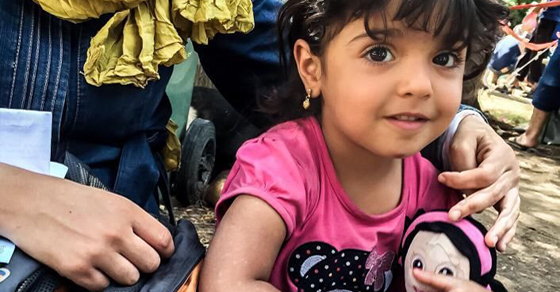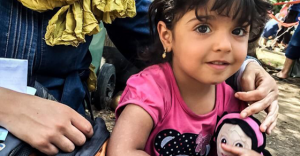
Ford’s ‘catastrophic’ legal aid cuts target refugees and immigrants
And may violate human rights norms
Advocates and experts say changes to Legal Aid support for immigration and refugee claimants puts more vulnerable people at risk and could violate human rights law.
Canadian Press reported Legal Aid Ontario’s CEO said, in the memo issued Monday: “The province has told the agency it can only use federal funding to cover new immigration and refugee services this year.”
Erin Simpson, chair the Advocacy Committee with the Canadian Association of Refugee Lawyers, described the cuts as “catastrophic,” and the resulting service reductions as a human rights violation.
Speaking with Press Progress, Simpson said it means counsel will not be provided “in preparation for hearings or of evidence and the services that used to go along with it.”
It’s a human rights violation because people’s fundamental human rights are at stake — access to counsel and access to justice
Likewiase, Neethan Shan, executive director of the Urban Alliance on Race Relations told PressProgress “Equitable access to Justice is the only way to ensure there is fairness and accoutability in our justice system and therefore cutting legal aid support to the racialized communities is a violation of the right to be treated equally by law. ”
Osgoode Hall law professor Sean Rehaag explains further:
This means that non-citizens who cannot afford lawyers will need to represent themselves – at their refugee hearings, in refugee appeals and judicial reviews, in immigration detention proceedings, in humanitarian and compassionate applications for permanent residence, and the like
Simpson noted, some, meanwhile, have already questioned the cuts’ legal viability.
Rehaag told PressProgress “we know that outcomes in refugee determinations hinge partly on access to counsel, the direct result of the LAO cuts is that some people who meet the refugee definition are likely not to be recognized as such.”
In that case? Rehaag noted “they will be at risk of being deported to face persecution, torture or even death.”
That, Rehaag said, would “leave Canada in contravention of international law.”
Additionally, Rehaag noted, for The Conversation:
refugee determinations involve high stakes and important rights. If not properly recognized, refugee claimants may be deported to face persecution, torture or even death. Because of these stakes, claimants are constitutionally entitled to a refugee determination process that complies with the principles of fundamental justice.
Our journalism is powered by readers like you.
We’re an award-winning non-profit news organization that covers topics like social and economic inequality, big business and labour, and right-wing extremism.
Help us build so we can bring to light stories that don’t get the attention they deserve from Canada’s big corporate media outlets.
Donate



